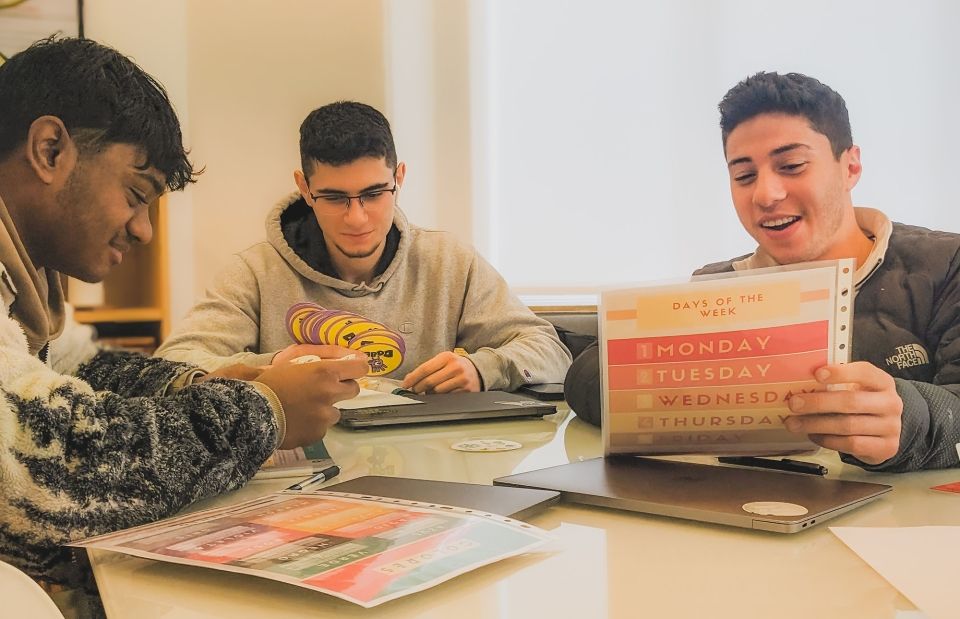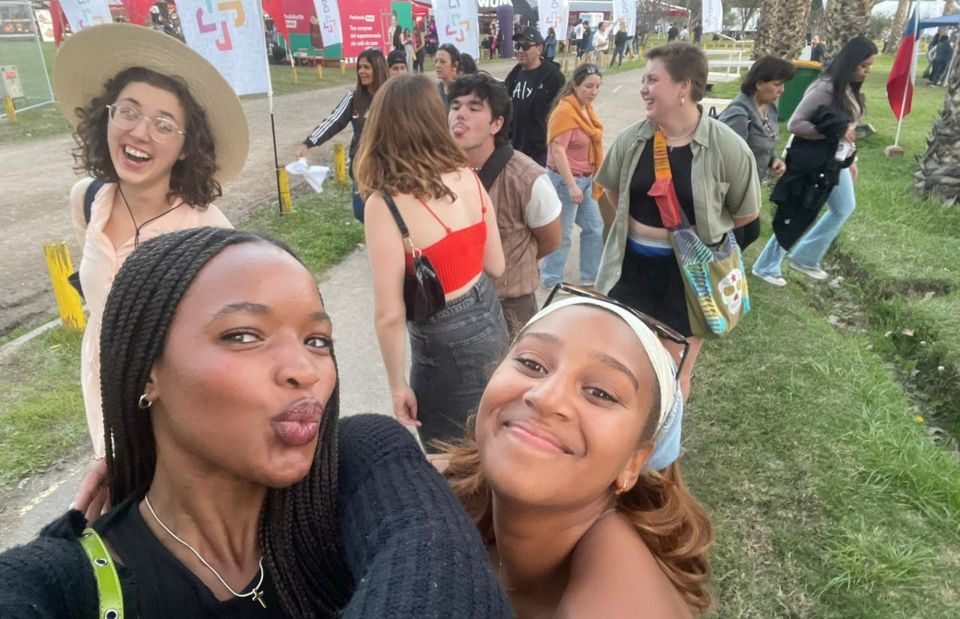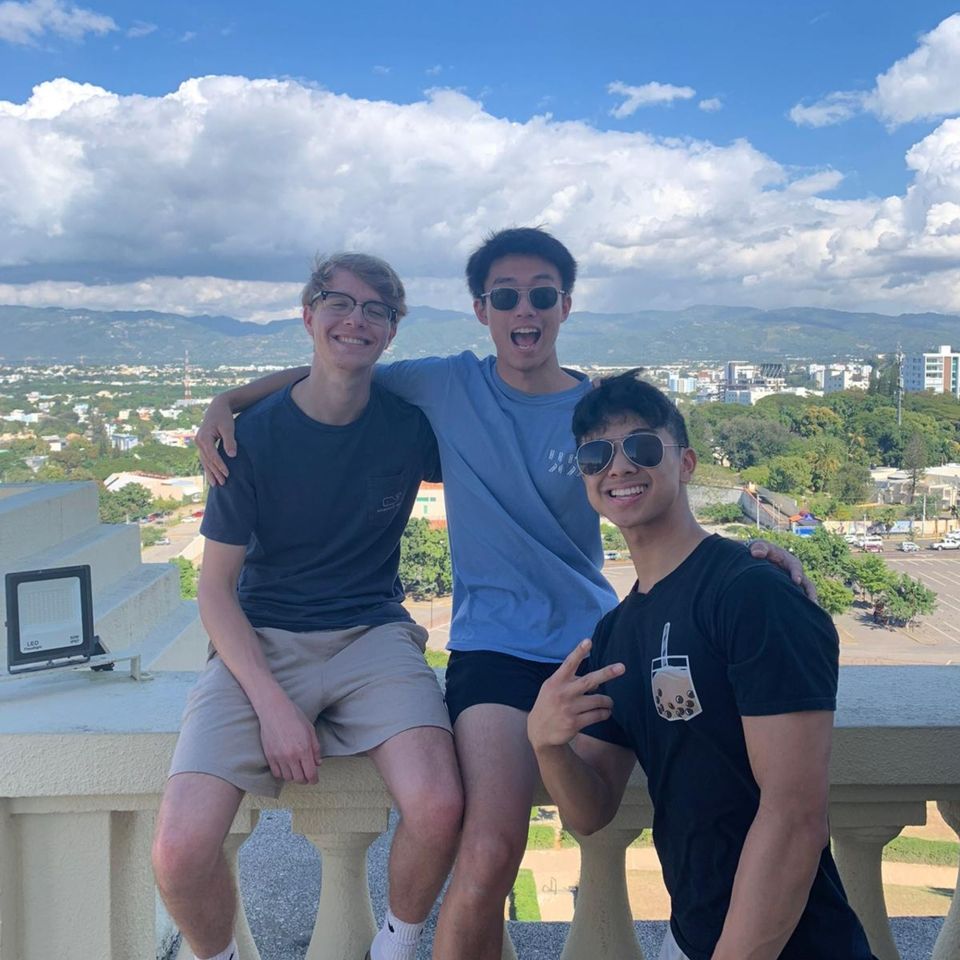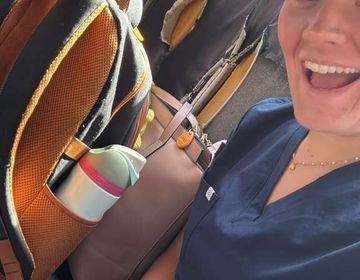Top 10 Spanish Slang Words and Phrases You Need to Know
Heading on an incredible study abroad journey where the locals primarily speak in Spanish? Then you’ll want to know some common Spanish slang words and phrases ahead of time so you can fit right in in your new surroundings.
¡Seguir a lo largo!
What Countries Speak Spanish?
There are many countries that speak Spanish throughout the world! And with the many CIEE Study Abroad options to choose from, you may find yourself in any of these Spanish-speaking locations:
And many others! There are many Spanish speakers around the world – not just in countries with Spanish as the official language. So, while you might not be expecting too much Spanish in France, Germany, Portugal, or Italy, you may be surprised by the number of Spanish slang words and phrases you’ll hear!
Read More: The 6 Best Places to Learn Spanish Abroad
Why Should You Learn Spanish Slang?
Spanish is one of the top languages in the world – meaning a lot of people communicate in Spanish. As our world continues to be more globalized, having the ability to speak and communicate in other languages is incredibly valuable. Plus, being able to connect with others from different regions and cultures is a huge benefit, too.
In addition to Spanish, learning Spanish slang is important. It’ll help you expand your Spanish vocabulary, help you sound like more of a native speaker, and better understand colloquial terms used in everyday conversation – deepening your language learning abilities and connections. Imagine trying to keep up with a conversation in English not knowing what terms like, “What’s up?” or “hang out” mean. It’d be challenging. Also – it’s fun! Who doesn’t want to learn exciting slang words and phrases?
Let’s take a closer look at common Spanish slang words and phrases spoken in our study abroad Spanish-speaking destinations!

Top 10 Spanish Slang Words Spoken in Spain
Spain is fascinating. From Barcelona and Seville to Madrid and Alicante (and even more) you’ll have an incredible experience exploring Spanish cities packed with history, culture, architecture, and of course, deliciosa cuisine. Here are some common Spanish slang words to try using during a Spain study abroad program:
- Guay means something cool or awesome
- Vale is like the Spanish slang version of “okay” or “alright”
- Cutre is used to describe something as poor quality or tacky
- Currar is Spanish slang for work
- Tía/tío officially means aunt or uncle but in Spanish slang, it refers to a friend, like “dude” or “buddy”
- Majo refers to someone nice, friendly, or even attractive
- Hombre officially translates to “man,” but in Spanish slang, it’s used as a term of endearment for a friend or relative
- ¿Qué pasa? Translates to “What’s up” in Spanish slang
- Qué fuerte is used when something is surprising or shocking, either positively or negatively
- Estar como una cabra literally translates to “to be like a goat,” but in Spanish slang, refers to someone who’s a bit crazy
Brush up on some of these Spanish slang words and phrases so you can communicate like a local in no time!

Top 10 Spanish Slang Words Spoken in Argentina
Argentina is a dream. With stunning natural landscapes, a flourishing arts community, a lively sports scene, and fascinating cultures and people, you’ll have the experience of a lifetime studying abroad in the country’s exciting capital, Buenos Aires.
And while you adventure throughout Argentina, feasting your eyes on the Patagonia mountains, taking traditional dance lessons, and more, you’ll want to chat with the locals easily by better understanding common Spanish slang words and phrases!
Take a look at 10 of them here:
- Che means a casual “hey” or “What’s up” in Spanish slang
- Boludo is a popular term in Argentina, meaning “buddy” or “dude,” but in a different context, can refer to someone as “stupid” or “foolish,” so be careful when using this one
- Estar al horno translates literally to “to be cooked in an oven,” but in Spanish slang, it means someone is in trouble or in over their head
- Tener mala leche literally translates to “to have bad milk” which means “bad luck” in Spanish slang
- Buena onda the English equivalent of this Spanish slang word is “good vibes”
- Tomátelo con soda translates to “take it with soda” but informally means “taking it easy” or “taking it slow” in Spanish slang
- Tener fiaca refers to someone as being lazy
- Mandar fruta translates literally to “to send fruit” but refers to someone who is being nonsensical or dodgy in Spanish slang
- Ponerse las pilas literally translates to “to put in the batteries” and in Spanish slang, means to recharge, be alert, or get going
- Groso refers to someone who is great or awesome
Practice your Spanish slang in Argentina!

EXPLORE ARGENTINA STUDY ABROAD
Top 10 Spanish Slang Words Spoken in Chile
Discover vibrant Chile in the country’s capital, Santiago. As a dynamic city with a growing economy, rich culture, and beautiful natural attractions, you’ll have a diverse experience exploring Chile. Not only will you enhance your Spanish language learning skills, but you’ll also have the opportunity to visit urban centers, modern resort cities, the local art scene, beaches, recreation facilities, and more.
Plus – they use some pretty fun Spanish slang words and phrases:
- Cachai meaning “you know” or “you got me,” usually used at the end of a sentence
- Pololo/polola referring to a boyfriend or girlfriend
- Carrete means “party” in Spanish slang spoken in Chile
- Fome is a term used to describe something as lame or boring
- Taco actually doesn’t refer to the food, in Spanish slang this means being stuck in traffic
- Luca the English equivalent of this Spanish slang word is “cash” or “bucks”
- Bacán is used when describing someone or something as cool or awesome
- Al lote refers to something as being chaotic or a mess
- Flaite is Spanish slang for something that’s tacky
- Cuico/cuica refers to someone who is wealthy or posh
Keep familiarizing yourself with these popular Spanish slang words and phrases ahead of your travels to Chile!

Top 10 Spanish Slang Words Spoken in Costa Rica
When you study abroad in Costa Rica, you’ll get to explore Monteverde, a small town known for its big-time conservation and eco-tourism efforts. Home to the Cloud Forest Reserve, you’ll get to study and work alongside professionals, examining the country’s 2,500+ species of plants, 60+ amphibian species, 100+ mammal species, 450+ bird species, and more. You’ll also get to hike, camp, and dive into Costa Rican culture with this incredible study abroad program.
And, with all this hands-on adventure, you’re going to want to sound like a local, too! Examine the top 10 Spanish slang words and phrases spoken in Costa Rica:
- Tico/tica is how many Costa Ricans refer to themselves
- Mae means “dude” in Costa Rican Spanish slang
- Pura vida means “pure life,” and can be used as a mantra or in everyday conversation, like as a replacement for “hello, how are you?” It’s also considered the national saying.
- Diay/idiay is essentially a sentence filler and has a variety of meanings, including “what,” “um,” and even “and”
- Tuanis means “cool” in Costa Rican Spanish slang
- Brete is Spanish slang for a job
- ¿Al chile? Meaning “Really?” or “Are you serious?”
- ¡Qué chiva! Translates to “How cool!”
- N.J./nos juimos the English equivalent of this Spanish slang word is “we’re outta here!” or “let’s go!”
- Despiche refers to something as a big mess
Start practicing your Spanish slang now before your Costa Rican adventures!

EXPLORE COSTA RICA STUDY ABROAD
Top 10 Spanish Slang Words Spoken in Dominican Republic
The Dominican Republic is the perfect tropical study abroad destination. Boasting stunning beaches and national parks, exciting traditions (meringue anyone?), museums, markets, the arts, and even passionate baseball fans, there’s much to discover in the beautiful DR.
As you expand your Spanish, take note of some common Spanish slang words used in the DR – so you can talk baseball properly, of course:
- Vaina is a complex Spanish slang word; it can be used in a variety of ways including referring to something unknown, unpleasant, or even just a “thing”
- Hartura refers to eating too much and being full, or even feeling overwhelmed
- ¿Qué lo que? Means “What’s up” in Spanish slang
- Nítido means cool or great
- Guagua is Spanish slang for bus; they’re used frequently as transportation throughout the DR
- Concho refers to another form of transportation, like a taxi
- Chercha refers to a party or a good time
- Un chin means “a little bit”
- Dame dato the English equivalent of this Spanish slang word is “tell me about it” or “tell me more/details”
- Pana meaning “buddy” or “dude;” a term of endearment for friends
Start practicing your Spanish slang before diving into the Dominican Republic!

EXPLORE DOMINICAN REPUBLIC STUDY ABROAD
Top 10 Spanish Slang Words Spoken in Mexico
Ahh Mexico. Your study abroad program takes place in the lovely Yucatán Peninsula, where you’ll go on quite the journey throughout the region, exploring ancient artifacts and sites, biodiversity, postcard-perfect landscapes, museums, galleries, and incredible restaurants. Studying abroad in Mexico is an exciting way to expand your global perspective.
And, you’ll want to know some Spanish slang spoken in Mexico before your arrival:
- ¿Qué onda? Is “What’s up?” in Spanish slang in Mexico
- ¡Ándale! meaning “hurry up!”
- Chamba refers to a job
- Guëy meaning “dude” or “buddy”
- ¡No manches! The English equivalent of this Spanish slang word is “you’re kidding me” or “no way”
- ¡Órale! Meaning “wow” or “right on”
- Suave is used to describe someone as cool or smooth
- Bronca meaning a problem or difficult situation
- ¡Aguas! Translates literally to “waters,” but in Spanish slang, this means “watch out!”
- ¿Mande? is used for additional clarity, like asking “what?” or asking someone to repeat themselves
This list of Spanish slang words and phrases will have you conversing throughout Mexico in no time!

Take Your Spanish Language Skills to the Next Level
It’s important to remember that the meaning of these Spanish slang words does vary from country to country – a slang word or phrase in Mexico may mean something else entirely in Spain or Costa Rica. Be careful when utilizing any slang terms – taking some time to become more acquainted with the local language in your study abroad destination will help!
Familiarizing yourself with a variety of different Spanish slang words and phrases will enrich your study abroad experience by helping you dive further into the local culture and learn how to communicate in your study abroad destination more authentically. Your study abroad experience will be chercha (or tuanis or bacán or groso …) you get the point – you’re going to have a fantastic time!
Related Posts
Adjusting to a New Routine: What a Typical Week Looks Like for Students Studying Abroad in Palma
Studying abroad in Palma de Mallorca offers students an exhilarating mix of cultural immersion, intellectual growth, and personal discovery. While the idea of residing in a foreign country may be... keep reading

CIEE Full Circle Experience - Life Update! By Margeaux Stapleton
Hey friends! I thought it was time for a life update. I know many of you watch my stories and reels, but as a friend reminded me the other day... keep reading
How to Make Friends and Build Community While Studying Abroad in Palma
Starting a study abroad program in Palma de Mallorca is an exciting adventure—but can also be a little daunting, especially if you're going it alone or haven't yet met anyone... keep reading

